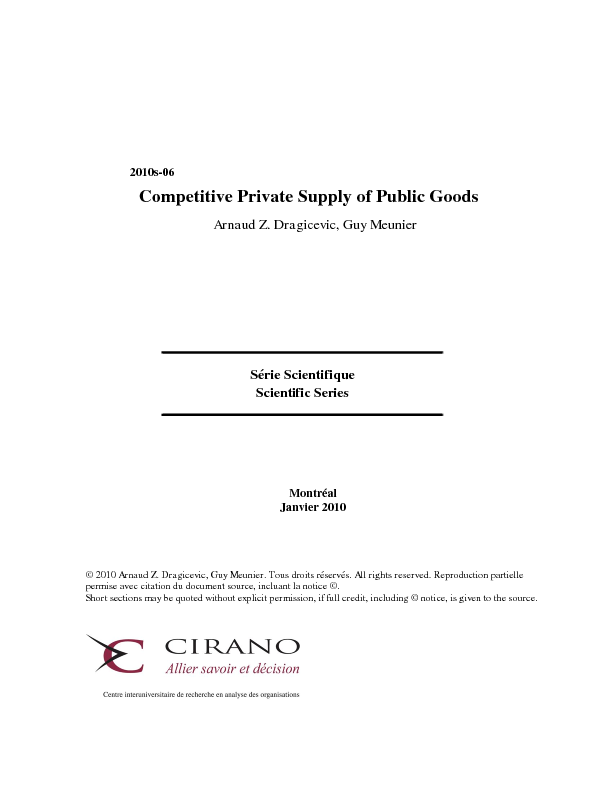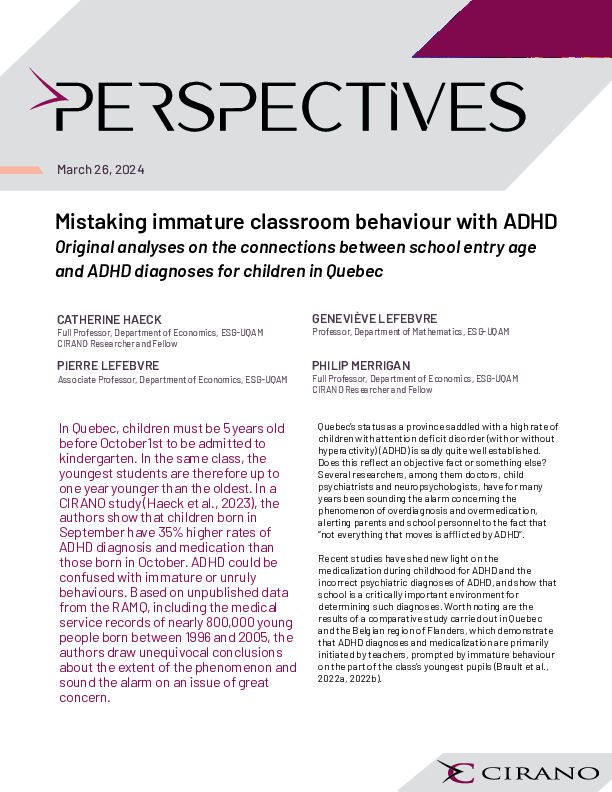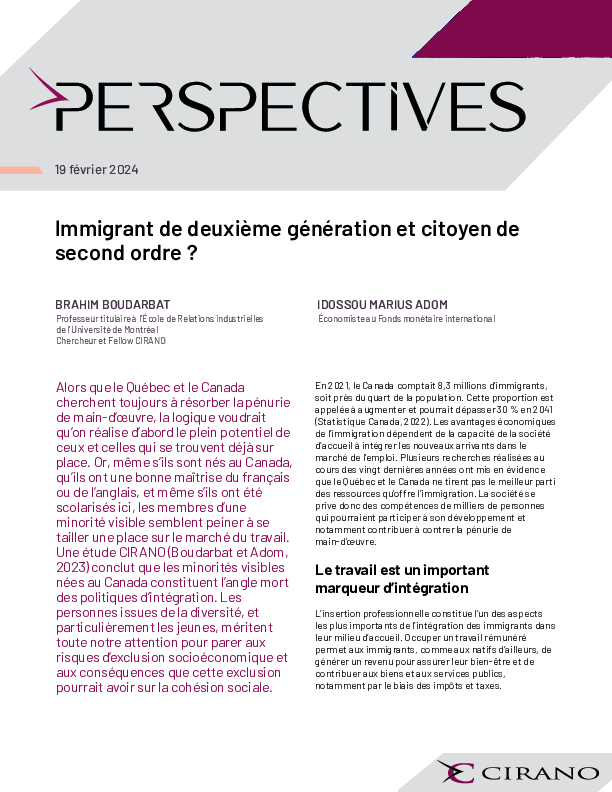Competitive Private Supply of Public Goods
This paper compares guilt alleviation and competition for social status in the private provision of a public good. When agents are intrinsically impulsed, that is, they mostly provide the public good in order to alleviate their guilt, they tend to free-ride. In contrast, when agents are extrinsically impulsed and compete for social status, their provisions become strategic complements. In the latter case, the aggregate level of the public good increases as the disparity between agents' incomes shrinks. In the see-through scenario, subsidizing has an ambiguous impact on the aggregate level of the public good. In any case, injecting competition for social status into utility functions increases provisions to a public good, and hence its aggregate level. Market competition thus creates incentives to overcome the free-riding issue.
[ - ]




